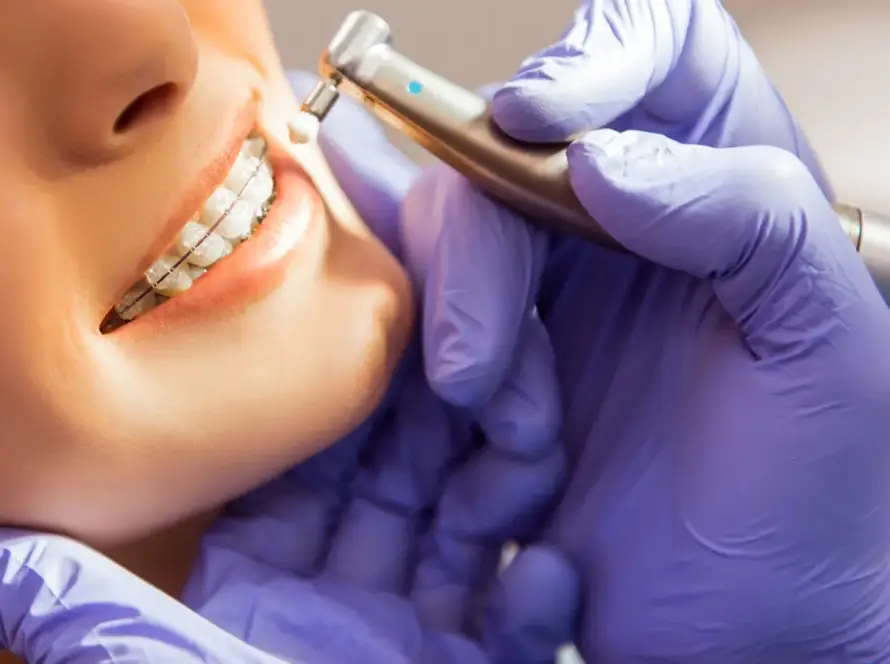![]() How Can a Dentist Tell if You Smoke?
How Can a Dentist Tell if You Smoke?
Smoking is a habit that leaves its mark on various aspects of your health, and your oral health is no exception. Many individuals wonder if dentists can discern whether or not they smoke during a routine dental examination. The short answer is yes. Dentists are skilled at identifying the signs of smoking through a thorough examination of your teeth and gums. Dentists can often determine if a patient smokes by conducting a thorough examination and looking for specific signs and symptoms associated with smoking. Here are some ways a dentist can tell if you smoke:
- Stained Teeth: Cigarette smoking can cause yellow or brown stains on the teeth, especially along the gum line. These stains are difficult to remove with regular brushing and may indicate a history of smoking.
- Bad Breath: Smoking can contribute to persistent bad breath, also known as halitosis. The chemicals in tobacco products can leave a distinct odor in the mouth, even after brushing or using mouthwash.
- Gum Disease: Smokers are at a higher risk of developing gum disease due to the harmful effects of tobacco on the gums and supporting tissues. Dentists may notice swollen, red, or bleeding gums during the examination, which are common signs of periodontal disease.
- Oral Cancer: Smoking is a significant risk factor for oral cancer. Dentists are trained to detect suspicious lesions or abnormal tissue changes in the mouth that could potentially indicate the presence of oral cancer.
- Dry Mouth: Smoking can reduce saliva production, leading to a dry mouth. Dentists may notice signs of dry mouth, such as cracked lips, a sticky feeling, or an increased susceptibility to cavities.
It’s important to note that while these signs may strongly indicate smoking, they are not definitive proof. If you smoke or have a history of smoking, it’s essential to be honest with your dentist about your habits. This information helps the dentist provide appropriate care and tailor treatment plans to your specific needs.
How Smoking Affects the Mouth and Teeth
Smoking has detrimental effects on the mouth and teeth. It not only stains the teeth but also leads to bad breath, known as halitosis. The chemicals present in tobacco smoke can cause gum disease, leading to inflammation and infection of the gums. This can progress to periodontitis, a severe form of gum disease that can result in tooth loss.
Furthermore, smoking compromises the body’s immune system, making it more difficult to fight off infections such as oral thrush and canker sores. It also slows down the healing process after oral surgery or dental procedures.
Not only does smoking affect the soft tissues in the mouth, but it also damages the hard tissues, including tooth enamel. The chemicals in tobacco smoke can erode the enamel, making teeth more susceptible to cavities. Additionally, smoking increases the risk of developing oral cancer, including cancer of the tongue, lips, and throat.
Overall, smoking has significant negative effects on oral health. Dentists can often discern whether a patient smokes through the presence of yellow or brown stains on the teeth, bad breath, gum disease, and increased risk of infections. It is crucial for smokers to understand the impact cigarettes can have on their oral health and seek professional help to quit smoking for the sake of their teeth and overall well-being.
The Role of a Dentist in Identifying Smoking Related Dental Issues
When it comes to identifying smoking-related dental issues, dentists play a crucial role in detecting and addressing the potential harmful effects of tobacco use on oral health. With their expertise and keen observation skills, dentists can identify various signs and symptoms that may indicate a patient’s smoking habit.
- Oral Examination:
- Dentists perform a thorough examination of the mouth, teeth, gums, and oral tissues to assess the overall oral health. They specifically look for indications of smoking-related dental issues such as:
- Stained teeth: Dentists note the presence of yellow or brown stains on the teeth, a common outcome of smoking.
- Bad breath: Tobacco use can lead to persistent bad breath, which can be easily detected during a dental examination.
- Dry mouth: Dentists may notice signs of reduced saliva production, often caused by smoking, which can lead to various dental problems.
- Gum problems: Smokers are more likely to develop gum disease, so dentists carefully examine the gums for signs of inflammation, bleeding, or periodontitis.
- Dentists perform a thorough examination of the mouth, teeth, gums, and oral tissues to assess the overall oral health. They specifically look for indications of smoking-related dental issues such as:
- Identifying Oral Cancer:
- Dentists are trained to recognize the early signs of oral cancer, which is associated with smoking. They thoroughly examine the oral cavity, tongue, soft tissues, and throat for any suspicious lumps, bumps, or abnormal changes in color or texture. Early detection of oral cancer significantly increases the chances of successful treatment.
- Communication with Patients:
- Dentists also play a crucial role in open communication with their patients regarding smoking habits. They may ask direct questions about tobacco use or discuss the potential risks associated with smoking. Establishing a trusting relationship with patients can encourage them to share their smoking history, allowing dentists to provide tailored advice and develop appropriate intervention strategies.
- Referral and Collaborative Care:
- If dentists identify signs of smoking-related dental issues or suspect oral cancer, they may refer patients to other healthcare professionals, such as oncologists or tobacco cessation specialists. Collaborative care ensures that patients receive the necessary treatment and support to address the underlying issues related to smoking.
In conclusion, dentists possess the knowledge, skills, and tools to identify smoking-related dental issues effectively. Through comprehensive oral examinations, observation of specific signs, and open communication, dentists contribute to the early detection, prevention, and treatment of oral health problems associated with smoking. By actively addressing these issues, dentists can help their patients improve their oral health and overall well-being.
Common Dental Problems Caused by Smoking
- Stained Teeth: Smoking can cause significant discoloration and staining of the teeth. The nicotine and tar present in cigarettes can penetrate the enamel, leading to a yellow or brownish tint. This staining can be difficult to remove with regular brushing and may require professional teeth whitening treatments.
- Bad Breath: Smoking is a common cause of chronic bad breath, also known as halitosis. The chemicals in tobacco smoke can linger in the mouth, throat, and lungs, resulting in an unpleasant odor. Regular smoking can also contribute to dry mouth, which further exacerbates bad breath.
- Gum Disease: Smokers are at a higher risk of developing periodontal (gum) disease. Tobacco use weakens the immune system, making it harder for the body to fight off bacteria in the mouth. This can lead to inflammation, infection, and potential tooth loss. Smokers may also experience delayed wound healing after dental procedures.
- Oral Cancer: Smoking is a major risk factor for oral cancer. The chemicals in tobacco smoke can cause genetic mutations and damage to the cells in the oral cavity. Regular smokers are at a higher risk of developing various types of oral cancer, including cancers of the lips, tongue, cheeks, and throat.
- Delayed Healing: Smoking can hinder the body’s natural healing process, including wound healing in the mouth. After dental procedures such as tooth extractions or gum surgeries, smokers may experience slower healing, increased risk of infection, and complications.
- Reduced Sense of Taste and Smell: The chemicals in tobacco smoke can dull the sense of taste and smell over time. Smokers may find that they have decreased enjoyment of food and difficulty detecting subtle flavors.
- Tooth Decay: Smoking can contribute to an increased risk of tooth decay. The chemicals in cigarettes, along with the dry mouth caused by smoking, can create an environment conducive to the growth of harmful bacteria. This can lead to the formation of cavities and the need for dental fillings or other restorative treatments.
- Receding Gums: Smoking can cause the gums to recede, exposing the roots of the teeth. This can result in tooth sensitivity, increased risk of tooth decay, and aesthetic concerns. Receding gums also make it more difficult to maintain good oral hygiene and can contribute to gum disease.
It is essential for smokers to be aware of these potential dental problems and to seek regular dental check-ups and cleanings to minimize their impact. Quitting smoking can greatly improve oral health and decrease the risk of developing these issues.
What is the role of a dentist in identifying smoking related dental issues?
Dentists play a crucial role in identifying smoking-related dental issues. They assess oral health, examine the mouth and teeth for signs of smoking, and may ask questions to determine smoking habits. Dentists can also educate patients about the risks of smoking, provide cessation support, and recommend appropriate treatments for smoking-associated dental problems.
Why are regular dental check ups important for smokers?
Regular dental check-ups are crucial for smokers because smoking increases the risk of developing oral health issues. Dentists can detect early signs of smoking-related dental problems, provide necessary treatments, offer smoking cessation advice, and monitor overall oral health. Additionally, regular check-ups help maintain healthy teeth and gums, preventing further damage caused by smoking.















